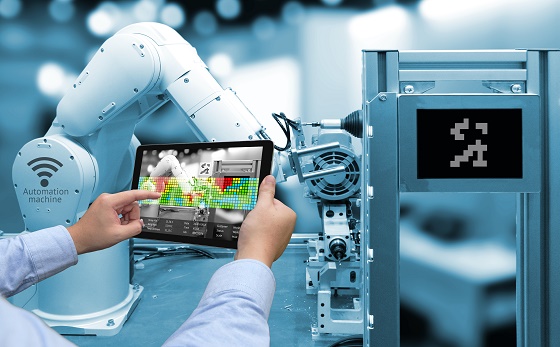
Manufacturers are working toward smarter factories, smarter networks, and smarter robots. But at least two sociologists think that dumb robots might actually have some benefits as collaborative machines.
This is counter-intuitive, certainly, and it’s swimming against the tide as robotics researchers strive for safer and more collaborative robots.
The experiment
The Yale sociologists gave teams, some all-human and some including both human and robot members, problems to solve. Smart robots didn’t speed up the process at all, but dumb robots which made erratic choices did. Teams with dumb robots showed statistically significant improvements in the speed of their solutions — they were 55.6% faster.
The immediate objection may be that we’re talking here about robots programmed to appear either smart or dumb, rather than actual smart and dumb machines. In fact, the dumb robots were simply making random choices 30% of the time.
Some of us at this point may be thinking of human colleagues we’ve known who made apparently random choices at least 30% of the time.
What was really happening
And indeed, the hypothesis doesn’t have much to do with robotics. The researchers think that human beings working remotely in a situation with little opportunity to communicate — an increasingly frequent reality in the modern work world — got attached to a particular approach to solving the problem. If the human beings’ approaches were incompatible with other humans’ ideas, they often continued to use their own approaches, figuring that the other people were doing it wrong.
Random behavior shook things up and made the humans rethink their methods.
The study didn’t really allow researchers to conclude that dumb robots are better collaborators. Rather, it proved that automated collaborators have effects on human behavior in a work environment.
Shake it up?
The effect in this case was to speed up performance in problem solving. That’s a desirable effect. With 4,000 subjects, this experiment is probably large enough to be meaningful. However, one experiment is not enough to allow robotics researchers to conclude that programming their robots to pull goofy moves will improve their results in real-world work settings.
More research is required.
In the meantime, you can call 479-422-0390 for immediate assistance with your Rexroth electric motion control. We specialize in Rexroth electric drive and control systems, new or legacy.
